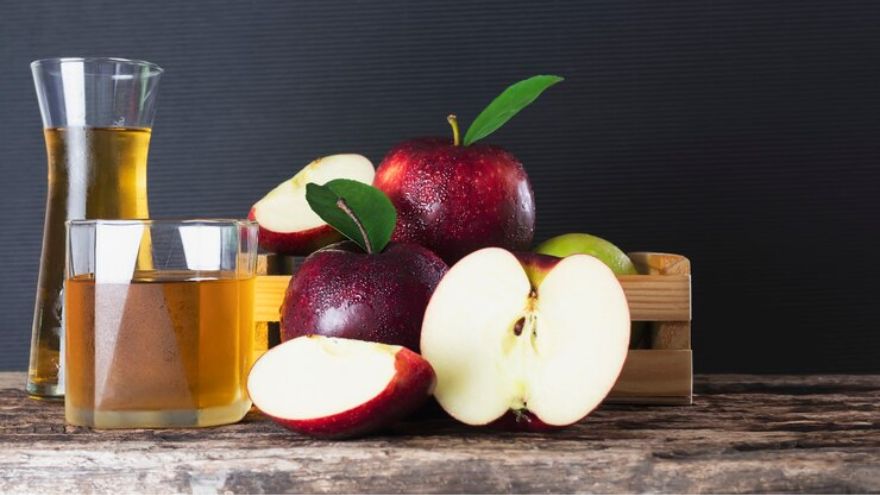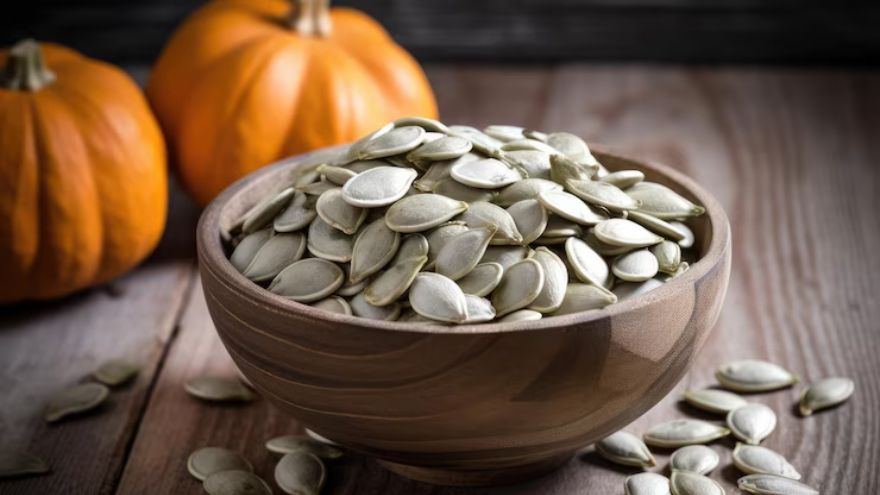
Apple cider vinegar (ACV) might look like just another item in your kitchen, but it has many amazing uses. Whether you're into health, cooking, or DIY beauty treatments, ACV can be a great addition to your daily routine.
Vinegar has been used for thousands of years. The Babylonians used vinegar made from dates around 5000 BC. During the Middle Ages, people used vinegar to clean wounds and even to help fight the plague. In early America, settlers used apple cider vinegar to prevent scurvy and preserve food. These traditions have kept ACV popular through the ages. Let's explore apple cider vinegar benefits, and different ways you can use it.
What’s in Apple Cider Vinegar?
Apple cider vinegar is made by fermenting apple juice. It is made in a two step fermentation process. First, crushed apples are exposed to yeast, which ferments the sugars and turns them into alcohol. Then, bacteria are added to the alcohol solution to ferment it into acetic acid, the main active compound in vinegar. The result is a liquid with acetic acid, vitamins, minerals, and beneficial bacteria known as the "mother." This murky substance often seen in raw, unfiltered ACV is believed to be the healthiest part. ACV also contains water, vitamins, minerals, and trace amounts of other acids.
Health Benefits of Apple Cider Vinegar
1. Helps Digestion
If you have problems with indigestion or bloating after a meal, ACV might help. Many people find that drinking a small amount of diluted ACV before meals can make digestion easier and reduce stomach discomfort.
2. Regulates Blood Sugar
For those with insulin resistance or type 2 diabetes, ACV can help manage blood sugar levels. Studies suggest that drinking ACV before eating carbs can lower blood sugar spikes and improve insulin sensitivity.
3. Supports Weight Loss
While it's not a magic weight loss potion, ACV can aid your efforts. It can help with weight loss by making you feel full, which may lead to eating fewer calories. Some studies have shown that people who include ACV in their diet lose more weight and belly fat compared to those who don’t.
4. Promotes Heart Health
ACV might also be good for your heart. Animal studies suggest that the acetic acid in ACV can lower cholesterol and triglyceride levels. Though human research is still ongoing, incorporating ACV into a balanced diet could support heart health.
5. Kills Harmful Bacteria
The acetic acid in ACV is known for its antimicrobial properties. This makes it effective at killing harmful bacteria, which is why it’s often used as a natural disinfectant and preservative.
Everyday Uses of Apple Cider Vinegar
Let's discuss apple cider vinegar uses in details:
How to use apple cider vinegar Culinary?
-Salad Dressings
ACV is great for making salad dressings. Its tangy flavor works well with olive oil, herbs, and a little honey for a tasty vinaigrette.
-Marinades
Use ACV as a base for marinades to tenderize and flavor meats and vegetables. Mix it with soy sauce, garlic, and herbs for a simple marinade.
-Beverages
Many people enjoy drinking ACV mixed with water, honey, and lemon. It’s a refreshing drink that may also provide health benefits.
-Baking
ACV can be used in baking to help baked goods rise. It reacts with baking soda to produce bubbles, making cakes and breads fluffier.
-Pickling
ACV is perfect for pickling vegetables. It adds a nice tangy flavor and helps preserve them for longer.
Non-Culinary Uses Of AVC
Apple cider vinegar for hair Care
ACV can be used as a natural hair rinse. It helps balance the scalp’s pH, removes buildup, and adds shine. Mix equal parts ACV and water, pour over your hair after shampooing, let it sit for a few minutes, then rinse.
Apple cider vinegar for skin
ACV can act as a natural toner. It helps fight acne and balance the skin’s pH. Always dilute it with water before applying to your skin to avoid irritation.
Cleaning
ACV is an effective natural cleaner. Its acidity cuts through grease and grime, making it great for cleaning kitchen counters, glass, and other surfaces.
Deodorizing
ACV can neutralize odors. Add it to your laundry to remove stubborn smells or mix it with water in a spray bottle and use it as an air freshener.
Tips for Using ACV Safely
While ACV has many benefits, it's important to use it safely:
-
Always dilute it: Whether you’re drinking it or applying it to your skin, always mix ACV with water to avoid irritation or burns.
-
Protect your teeth: ACV is acidic and can erode tooth enamel. Rinse your mouth with water after drinking ACV or sip it with the use of straw to avoid direct contact of ACV with teeth.
-
Check with your doctor: If you’re taking medication, especially for diabetes or blood pressure, talk to your doctor before using ACV regularly.
Conclusion
Apple cider vinegar is a versatile and useful product. From helping with digestion and blood sugar to making tasty meals and cleaning your home, ACV has many benefits. It's a simple and natural addition to your routine that can improve your health and well-being. So next time you see a bottle of ACV, remember all the amazing ways you can use it!
Frequently Asked Questions About ACV
1. How much apple cider vinegar should I take daily?
A common recommendation is to take 1-2 tablespoons (15-30 ml) diluted in a large glass of water once or twice a day. It's important to start with a smaller amount to see how your body reacts.
2. Can I drink apple cider vinegar on an empty stomach?
Yes, you can drink ACV on an empty stomach. Some people find that it helps with digestion and gives a morning energy boost. However, always dilute it with water to avoid stomach irritation.
3. Is it safe to use apple cider vinegar on my skin?
Yes, ACV can be used on the skin, but always dilute it with water first (usually 1 part ACV to 2 parts water). Direct application can cause burns or irritation, especially on sensitive skin.
4. Does apple cider vinegar go bad?
ACV has a long shelf life and doesn't really expire due to its acidic nature. However, for best quality, store it in a cool, dark place and use it within a year or so after opening.
5. Can apple cider vinegar help with weight loss?
ACV can help with weight loss by making you feel fuller, which may lead to eating fewer calories. However, it should be used as part of a balanced diet and healthy lifestyle.
6. Can I use ACV for cleaning?
Yes, ACV is a great natural cleaner. Its acidity helps cut through grease and grime. You can mix it with water in a spray bottle for cleaning surfaces around your home.
7. Will ACV affect my dental health?
ACV is acidic and can erode tooth enamel if not properly diluted. To protect your teeth, always dilute ACV and rinse your mouth with water after drinking it.
8. Can I use ACV as a hair rinse every day?
Using ACV as a hair rinse is beneficial, but it's best not to use it every day. Once or twice a week is usually sufficient to avoid over-drying your scalp and hair.
9. Is it safe to take apple cider vinegar while pregnant?
Moderate use of ACV is generally considered safe during pregnancy, but it's always best to consult your healthcare provider before adding any new supplement to your diet.
10. Can ACV interact with medications?
Yes, ACV can interact with certain medications, including diabetes medications and diuretics. If you are on medication, consult your doctor before using ACV regularly.



